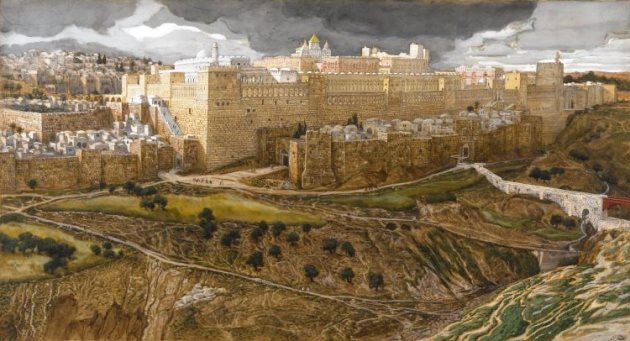
“אֹהֵב ה’ שַׁעֲרֵי צִיּוֹן מִכֹּל מִשְׁכְּנוֹת יַעֲקֹב.”
“God loves the gates of Zion above all the dwelling places of Jacob.” (Psalms 87:2)
What are these beloved “gates of Zion"? Why are they so dear to God?
A simple understanding of this verse would point to the gates of the holy Temple in Jerusalem, treasured above any other building or edifice.
But what about nowadays, after the Temple’s destruction? Do we have anything that can take the place — to some extent, at least — of the holy Temple?
Four Cubits of Halachah
Rav Hisda expounded this verse by noting that the word ‘Zion,’ ordinarily a synonym for Jerusalem, literally means ‘distinguished.’ “God loves the distinguished gates of Halachah [Jewish law] more than the synagogues and houses of study.” As the Sages taught, “Since the day the Temple was destroyed, the Holy One has nothing in His world except the four cubits of Halachah” (Berachot 8a).
In the absence of the Temple, Halachah takes on its central role. But what gives Jewish law such cosmic importance?
Communal Holiness
The Temple and a unifying code of Jewish law share a common function. They both embody the unique sanctity of the Jewish people. After all, what makes the Jewish people special? What is their 'zion' — their distinguishing trait?
The unique sanctity of the Jewish people is not expressed in the synagogue or the house of study. Other nations also set aside time for prayer and study. What truly distinguishes the Jewish people is the lofty goal of an entire nation living its life, both private and public, according to the Torah’s teachings. This is not a sanctity of individuals, but a communal holiness, whereby Halachic standards in all areas of life — food, dress, speech, business dealings, and so on — unify the people to live as God’s holy nation.
In the time of the Temple, the central service in Jerusalem was a unifying force of communal sanctity. The entire nation directed its spiritual aspirations towards this one focal point of holiness. All prayers were recited facing the Temple’s Holy of Holies.
After the Temple’s destruction, however, the only remaining spiritual force uniting the nation was the “the four cubits of Jewish law.” With great insight, Rav Hisda saw in Halachah the beloved “gates of Zion.” Halachah provides the Jewish people with ‘gates’ — a moral guide to all aspects of life, for the individual, the family, the community, and the nation. They are gates of zion, gates of ‘distinction,’ expressing the unique mission of “a kingdom of priests and a holy nation.”
(Adapted from Ein Eyah vol. I, p. 40)





